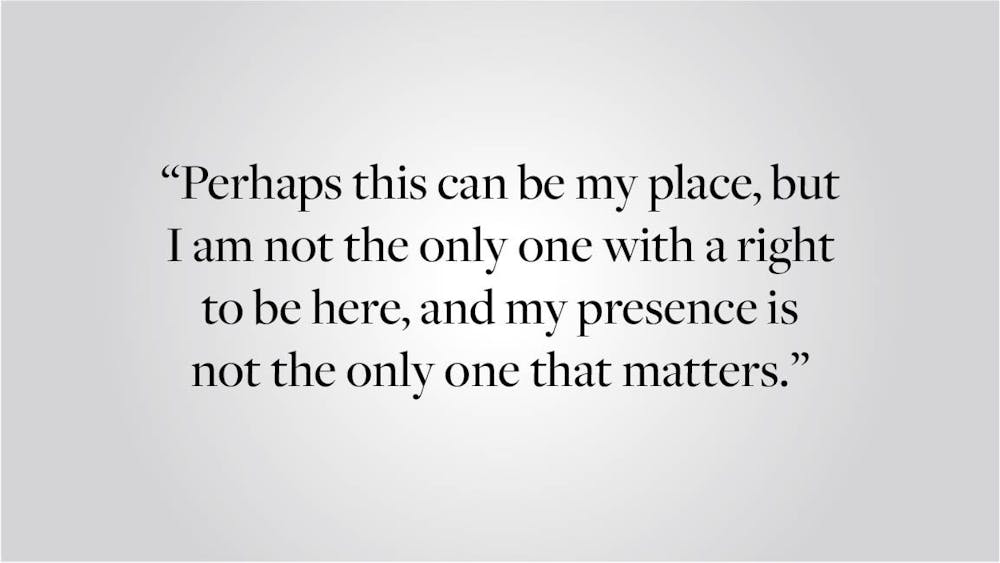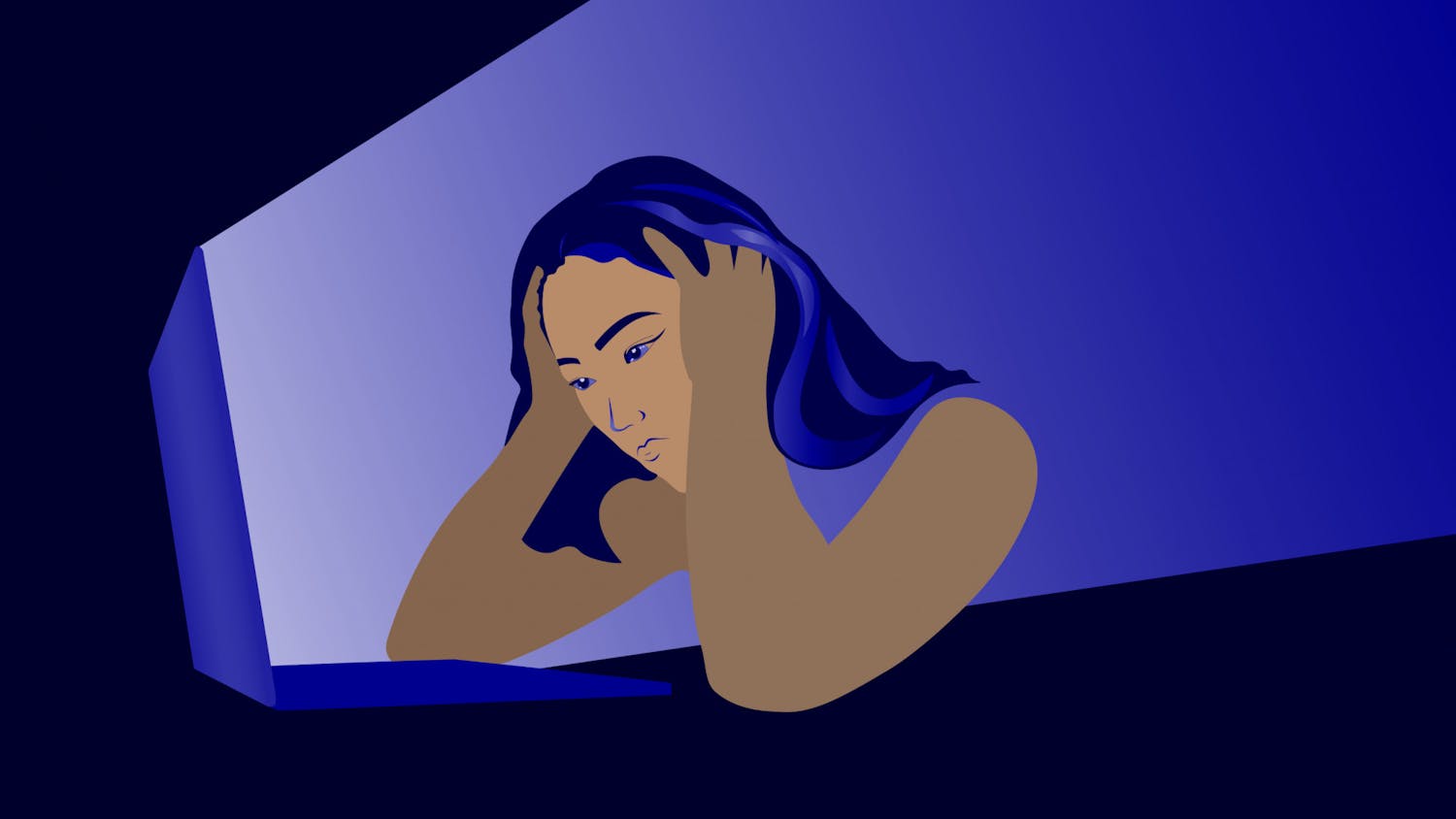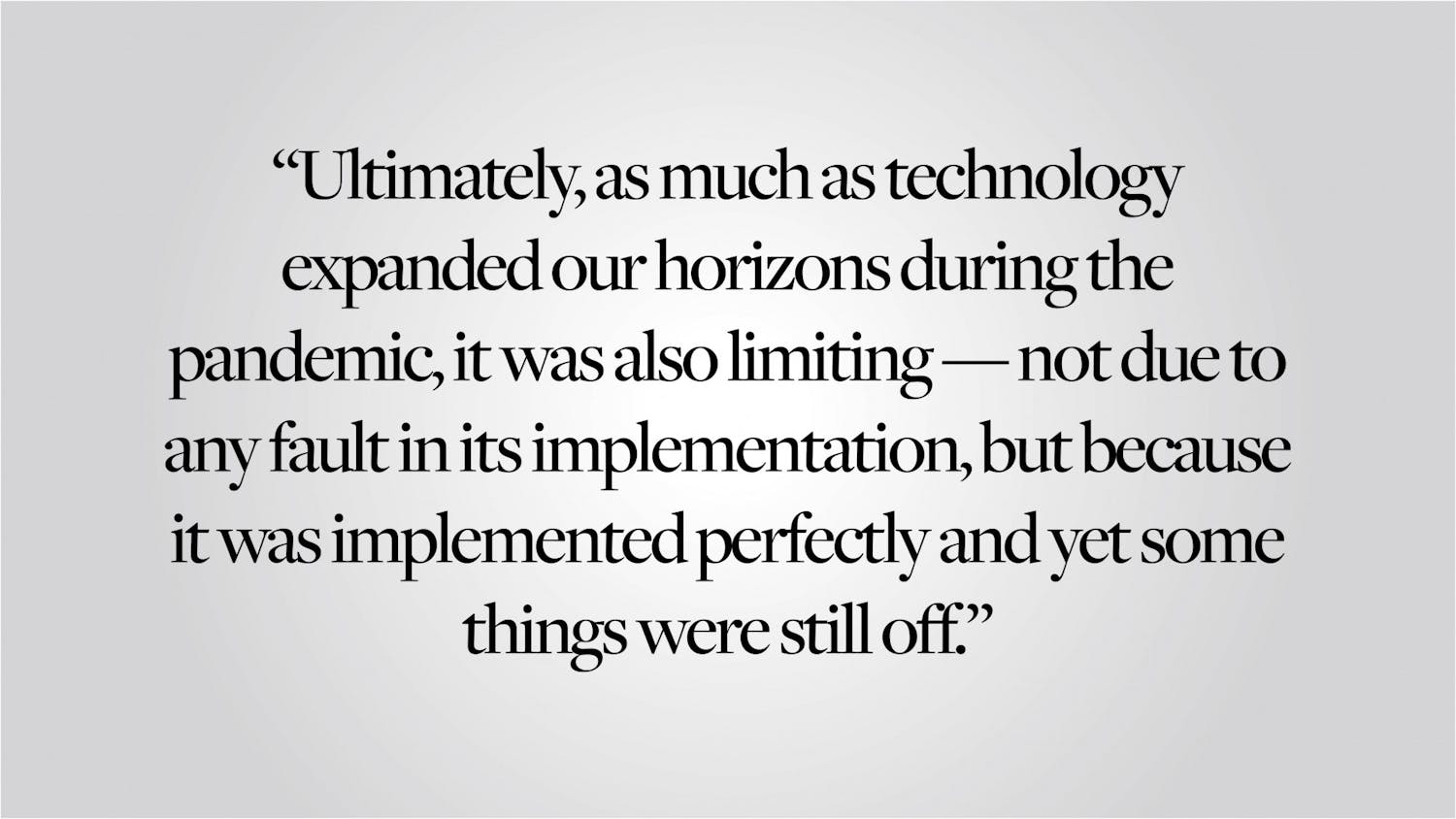I can’t remember the last time I looked forward to something the way that I looked forward to coming back to campus this semester. Like most Brown students, I spent about two and a half semesters taking classes remotely. For me, at least, Zoom University was awful — for many reasons, but especially because it left me feeling disconnected from a campus that I had grown to love so much. When I was physically separated from Brown, I disengaged from my classes, my professors and my peers. Being back on campus and back to in-person classes has made me appreciate the simple act of being here more than I ever would have otherwise. But it has also led me to question what it means to be a Brown student on this campus, as my fond memories of this place rub up against its unsavory history.
When I moved into Room 315 in Metcalf Hall just over two years ago, this unfamiliar landscape became my home. But as a first-year, I felt like I was trying to fit into someone else’s skin. Part of me seemed to have stayed behind in Ann Arbor, the only home I had ever known, and I felt a sense of unbelonging that was only reinforced every time someone asked me where I was from. I would never have dared to answer Brown or Providence. At the time, this place did not belong to me, and I did not belong to it.
It was in these uncertain moments that the words of anthropologist Dolores Hayden — “Place makes memories cohere in complex ways” — found me. Those seven words rang true as I made fond memories at Brown that intertwined with and informed my sense of self. The sophomore year I spent trapped in a box on a screen only heightened the feelings of joy and belonging that I felt upon returning this fall. The first time that I was able to sit in a classroom and partake in an enriching discussion with people who were in the same place as I was, rather than simply in the same Zoom meeting, brought me so much happiness that I couldn’t keep the smile off my face for the rest of the day. For me, just walking around campus aimlessly is a comforting exercise — taking in the blue sky and the watercolor trees while watching passersby going their respective ways. The fact that I was able to become more engaged with classes and extracurriculars simply by setting foot on campus illustrates how powerful this place is to me. There is something inexplicable about the campus’s ability to provoke a sense of belonging.
But despite the way that it looks and feels to me as a Brown student, this place is not so romantic. The land on which this campus was built was once inhabited by the Narragansett and Wampanoag Peoples until it was stolen from them through violence, disease and trickery. In addition, Brown University was literally built by the practice of slavery — the University’s founders owned slaves and made part of their fortune off of the slave trade. Brown’s Slavery and Justice Report found that approximately 30 members of Brown’s governing Corporation owned or led slave ships, and donors sometimes contributed slave labor to help in the campus’s construction.
Today, many argue the presence of Brown students like me has contributed to encroaching gentrification that has displaced working-class, immigrant communities in Providence. This place that I have grown to love was forcibly taken from Indigenous peoples and built by the labor of enslaved Black people. In the present, it continues to favor me, a transient college student, over those who have probably developed a sense of belonging in Providence over a longer period of time than my two years. Coming back to campus after a year away, I was forced to confront the question: Do I have the right to feel like I belong here when so many others have endured the trauma of losing this very same place? Whereas I was kicked off of campus for two and a half semesters but was immediately welcomed back with open arms, many others have been permanently displaced.
I still don’t know how to feel about my sense of belonging at Brown. In the short time that I have been on this campus, I have felt uncertainty, understanding, belonging and guilt. When I first read Dolores Hayden’s writing, I understood it as a vow to create my sense of belonging here by making new memories in these new places. But as I continue to learn about the memories that have cohered in this home I now inhabit, I feel as though I should concentrate on the latter three of those seven words that stick with me to this day: “in complex ways.” Perhaps this can be my place, but I am not the only one with a right to be here, and my presence is not the only one that matters. To exist on this campus as a Brown student is to accept the burden of its complexity — and this means that the way one conceives of Brown and reminisces on their experiences here will, necessarily, incorporate its unsavory history.
Bliss Han ’23 can be reached at bliss_han@brown.edu. Please send responses to this opinion to letters@browndailyherald.com and op-eds to opinions@browndailyherald.com.





